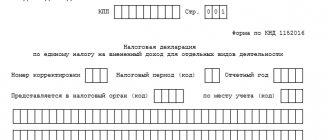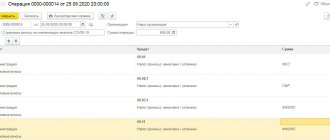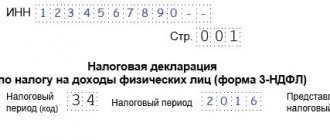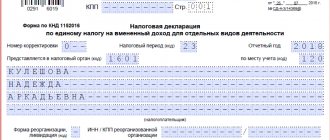Kira Gin, managing partner of the legal entity, tells the story.
The Russian Tax Service issued letter N ED-4-15/13247 dated July 10, 2018 on the prevention of violations of tax legislation. Tax officers were asked to determine in advance the circle of companies and individual entrepreneurs that submit VAT and income tax returns signed by unidentified persons.
Such an instruction is an initiative, it violates the provisions of the Tax Code of the Russian Federation, but it perpetuates state-sanctioned lawlessness on the part of the tax authorities and creates a corruption component.
What is the essence and significance of this letter. For about a year now, tax officials have been using a procedure that is not prescribed anywhere and is not fixed anywhere by the state: declarations that are signed, in the opinion of fiscal officials, by a dubious director are not accepted. In addition, if VAT gaps are detected in the chain of counterparties, submitted declarations are nullified/cancelled, and the information contained in them is simply not recognized. In such a situation, any law-abiding taxpayer will be forced to contact the tax office to find out what’s going on.
Because of the canceled declaration, the business will have to spend its resources and prove that it is “good” or pay extra to the budget. Moreover, tax authorities will look for candidates to reset income tax returns once a year, and VAT returns every quarter.
Basic information
What does cancellation of tax returns mean? For the organization, this means that tax representatives have received the authority to cancel annual tax reports. The event is carried out in relation to companies that are recognized as fly-by-night companies. Cancellation refers to the following operations:
- Invalidation of reporting.
- Revocation of a document.
- Transfer of the declaration to the register of acts that are not subject to processing.
What is the procedure for revoking (cancelling) VAT and income tax returns?
If the declaration is cancelled, it will be considered that it was not submitted. That is, partners of a shell company may be deprived of deductions. They will have to send updated reports to government agencies. These persons are subject to additional taxes.
FOR YOUR INFORMATION! The innovations outraged lawyers.
This is due to many reasons. For example, with strange signs of a fly-by-night company. Thus, the letter notes the following feature: the presence of the company owner’s lawyers during the interrogation of the latter. Although this applies to supposedly nominee directors, it still partially violates the person’s right to professional legal protection. The negative reaction is also due to the fact that the annulment of declarations is not provided for at all by the Tax Code of the Russian Federation.
Reasons for illegal refusal to accept declarations
We have reviewed the full list of grounds for refusing to accept declarations. This list cannot be expanded. Tax inspectors cannot interpret it at their own discretion. That is why the following reasons are not grounds for refusal:
- The organization has signs of dishonesty.
- Non-payment/periodic non-payment of LLC/IP taxes, fees, insurance premiums.
- Registration of an LLC at a mass address.
- Errors, inaccuracies, clerical errors made in the declaration.
- The organization lacks economic activity, fails to submit tax/accounting reports.
- Availability of debts on obligatory payments.
- LLC/IP is associated with shell companies.
- Transit nature of the taxpayer’s operations.
- Understatement of the tax base in the declaration.
It is important to note that tax inspectors do not have the right to assess the integrity of the organization and check the calculations specified in the declaration. These actions are performed only as part of a desk tax audit. That is why all of the above reasons are not a legal basis for refusing to accept reports; tax inspectors are obliged to accept reports.
In addition, tax authorities do not have the right to cancel declarations (letter of the Federal Tax Service of the Russian Federation dated November 2, 2018 No. ED-4-15 / [email protected] ). Even if the information contained in the declaration is unreliable or if it was submitted in bad faith by the LLC/IP.
Signs of fly-by-night companies
The innovations concern fly-by-night companies. Declarations filed by such companies are cancelled. This means that it is considered that they were not submitted. In light of the letters from the Ministry of Finance and the Federal Tax Service, signs of shell companies become extremely important. These signs are contained in the same letters. Let's consider the main ones:
- Incorrect serial number. The company may file a tax return with an error. In this case, you need to send clarification. Updated declarations are numbered. The clarification number 2 cancels the document number 3. The company's accountant knows what serial number needs to be entered. If the numbers are entered chaotically, this leads specialists to suspicion.
- The company director repeatedly ignored the need to appear for questioning. Attending interrogations if there is an official invitation is the responsibility of the director of the company. If a person regularly (more than 2 times) avoids invitations, this also leads to suspicion. This refers specifically to cases where the manager does not attend interrogations without a good reason.
- Presence of a lawyer at the interrogation. This is the most controversial point of the letter. However, it must be taken into account that this sign becomes relevant only in the presence of a number of circumstances. The manager may appear for questioning with a lawyer. This is his constitutional right. But if during the entire event the director cannot say anything about the company, does not know about its turnover, payment of VAT, and only the lawyer speaks, this leads to negative thoughts.
- The director or entrepreneur does not reside at the place of registration. This is again a controversial point. But this requirement can be explained simply. The fact is that the director’s registered address is a work address. It receives requests, notifications and other official documents. If a person is registered at one address, but lives on the other side of the country and does not respond to mail requests, this is a sign of questionable activity of the company. The director is obliged to respond to letters. Therefore, if he moves to another region, he must obtain temporary registration.
- The power of attorney is issued to a representative in another region. Here again, specific circumstances are important. If a company has many branches throughout Russia, this will not raise any questions. Other situations raise suspicions. Thus, one-day cards located in Moscow are often issued to persons from the regions. Firms are registered to mass addresses. A person from the region issues a power of attorney for a Muscovite. After this, the nominee director ceases to have any influence on the company’s activities.
- The company has been in existence for less than a year. Registering more and more new companies is quite simple. It works like this: one-day organizations are massively excluded from the register, but more and more new companies are created. Therefore, newly created organizations attract more attention. In itself, a short existence is not some kind of unambiguous sign on the basis of which conclusions can be drawn. This sign begins to work in conjunction with other circumstances.
- Zero reporting for several periods. With zero reporting, the company may well receive revenue. And then the lawbreakers simply withdraw money from the account and abandon the organization.
- Income always corresponds to expenses and VAT is fully deductible. The tax authorities place special registration on companies that deduct more than 98% of VAT. This is a clear indication that the company is a one-day company. Such companies do not have expenses for rent or salary payments. One-day companies usually receive a certain amount of funds. The same amount is transferred to the account of another company. There are no additional costs associated with the process.
- The company was not found at its registered address. This is a sign that the tax authorities have actively used before.
- There is no rental agreement. To do business, a company must be located somewhere. As a rule, this is someone else's premises. An agreement is concluded with the owner of this premises. If a company exists solely on paper, then it does not require any premises. As a rule, owners of one-day houses simply acquire legal addresses.
- Almost no one works in the company. Firms are required to submit tax documents with the average number of employees. If there is only one employee and the turnover is high, this is a reason to schedule an inspection.
- No one is paid a salary. The director is not obliged to pay salaries. He should not accrue salary even to himself. But the tax office can check exactly how the director lives if he doesn’t have any salary.
- There are no current accounts or there are too many of them. The company opens an account with a bank. The bank, in turn, must notify the tax office about the company’s settlement account. Suspicions are raised by the company's activities for 3 months without opening a bank account. A dozen open accounts are no less suspicious. An organization is registered even when its accounts are constantly blocked due to suspicions of cash withdrawal.
- Transit operations via account. Transit transactions are transactions in which money arrives in an account and is immediately transferred to another account. If this happens often, it raises the suspicions of both the tax office and the bank. The bank can simply block the account with transit transactions.
- The place of registration/director changes. If the place of registration and the director constantly and inexplicably change, this also applies to the list of signs.
Cancellation of declarations - a measure to prevent tax violations
All of the above characteristics are not absolute, but relative. That is, one sign in itself does not mean anything. The director can provide explanations for any oddities that exist. But if a whole set of signs is present, and the director of the company cannot say anything in his own defense, the tax office can cancel the declaration on these grounds.
The counterparty's declaration has been cancelled: what to do?
If the declaration of your counterparty is excluded, then information about this will be reflected in the ASK VAT program and this is dangerous for your company. Tax officials will ask for clarification and offer to “voluntarily” pay additional VAT to the budget. What can be done in this situation? Newspaper “ Accounting. Taxes.Pravo ” recommends the following: “In this case, find out from the supplier what is wrong with his declaration.
If it was rejected because of a fictitious director, ask to urgently change the information about the director and submit a report. Otherwise, it’s safer to remove deductions for transactions with him.” In my opinion, this advice is only suitable in some cases, and I believe that changing the fictitious director will not do. I will say right away that each situation must be analyzed separately. If the declaration of a first-line counterparty was canceled, then the situation is unpleasant and these will be your risks and consequences. If problems are discovered with declarations of levels 2-3 and beyond , then you have reason to inform the tax authorities that these are not your problems and let them look for the “bad guys” and money among these companies. In fact, the procedure for canceling declarations fits into the general trend of searching for transitors and beneficiaries, whom the tax office must find in the chain of counterparties if dubious transactions and VAT gaps are discovered.
I believe that this letter will in the very near future introduce a great deal of variety into the already difficult life of a taxpayer, which will lead to new obstacles to obtaining VAT deductions.
I remembered how at the Vedomosti conference, Daniil Egorov, deputy head of the Federal Tax Service and the author of the letter we are considering, complained that the information capabilities of the Federal Tax Service (meaning the ASK VAT) are ahead of the tax legislation in our country. And this significantly slows down the processes of economic development. I believe that such a letter and the actions of the tax service over the past year are not only ahead of the law, but also a failure to take into account how business generally develops and operates in our country.
The state gave complete carte blanche to the fiscal service. In a situation where our state needs money, it takes it. By any means. Something tells me that we will still see new letters and instructions from the Federal Tax Service, which will run counter to the “lagging” and not very advanced Tax Code, but amazingly, these innovations will work to increase budget revenues from business.
What happens if negative signs are detected?
If a company meets a number of negative criteria, it is scheduled for inspection. In particular, these events are carried out:
- Summoning the director or entrepreneur for questioning. During the process, the manager will be asked to explain any oddities found.
- Inspection of premises. During the process, they can verify, for example, the authenticity of the registration address.
- Sending requests to the bank. The tax office has the right to send a request to the bank about who exactly uses banking services. In particular, whoever opens the account withdraws money.
- Sending a request to a certification center. This center issues keys for electronic signatures. The tax office asks him for documents confirming who exactly interacts with the institution.
Verification is required to confirm that the company is a shell company.
"Inappropriate" signer
We have found that in four cases your report will be rejected due to an improper signature.
Make sure that the director and chief accountant have separate electronic signatures. Remember that it is easy to “compromise” a signature, in particular when the manager transfers his signature to third parties (see the decision of the Oryol Region Administrative Court of May 31, 2021 in case No. A48-2801/2019).
You can protect yourself from non-acceptance of declarations and settlements if you send them signed by a representative. This is the most reliable way. That is, submitting a declaration to a person whose information in the state register is unreliable is prohibited. But the restrictions do not apply to a representative with a valid power of attorney.
The powers of the representative must be confirmed by a power of attorney.
Tax authorities do not have the right not to accept a report when the power of attorney:
- provides for the powers of the representative to submit declarations;
- issued earlier than false information about the director appeared in the Unified State Register of Legal Entities (see the decision of the Perm Territory AS dated November 30, 2021 in case No. A50-23062/20).
The main thing is that the power of attorney is issued before a record appears in the Unified State Register of Legal Entities about the unreliability of information about the director.
Procedure for canceling declarations
Procedure for canceling tax returns:
- The manager is being interrogated. The subject of the interrogation is the discovered oddities. If the tax authorities' suspicions are confirmed, the cancellation process begins.
- Tax officials have the right to inspect the premises and demand documents related to the company’s activities.
- The head of the company is sent a notification that the declaration will be canceled within 5 days. In addition, together with the reporting, the account may be blocked for 10 days.
Some significant features of cancellation:
- The decision to cancel cannot be reversed. Therefore, it is necessary to solve the problem at the stage of tax interrogation.
- The local tax office cannot decide on cancellation. The event will require permission from the Federal Tax Service.
To provide technical support for the implementation of innovations, the Tax AIS was improved. In addition, the transfer of information to the VAT-2 ASK has been improved.
IMPORTANT! Old reports that have already been processed cannot be cancelled.
How does cancellation work?
Before canceling the tax return, the tax authorities will call the head and founders of the company to the inspectorate. They will find out whether they are related to the financial and economic activities of the organization.
Inspectors will also carry out the following activities:
- will inspect the premises at the company’s legal address;
- request information from banks about accounts and authorized persons;
- request information from certification centers about digital signature keys;
- will conduct an examination of the authenticity of documents and signatures of authorized persons on them.
Other grounds for canceling declarations
The presence of signs of one-day validity is not the only reason for canceling a document. The reasons that tax authorities used earlier remain relevant:
- The leader is in prison at the time of signing the declaration.
- The leader has died, become incapacitated or declared missing.
- Reporting is submitted after the day of liquidation of the company.
- The leader was disqualified.
- The manager refused his leadership position, as well as signing the statements and sending the declaration to the Federal Tax Service.
All these are objective reasons. If at least one of them is present, the reporting is canceled.
In what cases may tax authorities refuse to accept a declaration?
In clause 19 of the Administrative Regulations for the provision of public services for the acceptance of tax returns, approved. Order of the Federal Tax Service dated July 8, 2019 No. MMV-7-19/343 specifies a list of grounds for refusing to accept declarations. These may differ for paper and electronic returns.
For a paper declaration:
- The declaration was submitted to the wrong tax authority.
- Lack of signature of the person responsible for providing reliable and complete information specified in the reporting.
- Lack of identification documents of the individual responsible for submitting declarations to the inspection.
- Lack of documents confirming the authority of the representative responsible for filing returns with the tax office.
- Submitting a declaration not in the prescribed form.
- Submission of declarations and reports in which errors were made, for example, in the report on the calculation of insurance premiums; the amounts of payments and insurance premiums for all individuals do not correspond to the same indicators for the payer of contributions as a whole.
- Inaccurate data was provided, for example, in the calculation of insurance premiums, errors were made in the personal data of employees.
- The declaration was signed by a person who does not have the authority to confirm the accuracy and completeness of the information specified in the declaration.
For electronic declaration:
- The declaration was not submitted in the prescribed form/format.
- The declaration is not signed with an enhanced qualification electronic signature of the person responsible for providing reliable and complete information specified in the reporting (the head or authorized person of the organization), incl. for individual entrepreneurs providing tax returns/calculation through the taxpayer’s personal account on the official website of the Federal Tax Service.
- The declaration was submitted to the wrong tax office.
- Submission of declarations and reports in which errors were made, for example, in the report on the calculation of insurance premiums; the amounts of payments and insurance premiums for all individuals do not correspond to the same indicators for the payer of contributions as a whole.
- Inaccurate data was provided, for example, in the calculation of insurance premiums, errors were made in the personal data of employees.
- The declaration was signed by a person who does not have the authority to confirm the accuracy and completeness of the information specified in the declaration.
Note on clause 6: if the declaration is signed by the head of the organization, who does not have the authority to confirm the accuracy and completeness of the information specified in the declaration, then the declaration will be considered signed by an unauthorized person.
In what cases does the Federal Tax Service come to this conclusion:
- The declaration was signed by the disqualified head of the LLC/IP.
- The declaration was signed by the deceased head of the LLC/IP (according to information on state registration of death).
- The declaration was signed by a leader who has renounced leadership (participation) in the organization.
- The declaration was signed by an incapacitated/partially capable manager, incl. unknown missing (there is no information about his place of stay during the year at his place of residence).
- The declaration was signed by the head, in respect of whom an entry was made about the unreliability of the information contained in the Unified State Register of Legal Entities about the head of the organization.
If at least one of the above points is present, the tax office generates a notice of refusal to accept the declaration, followed by notification of the payer. Such notification must necessarily indicate the specific reason for the refusal to accept declarations.
What to do if the company has signs of being “one-day”
If the company has the signs set out in the letter from the Ministry of Finance, the manager is summoned for questioning. It makes sense to go there with a lawyer. It is the manager who must answer all questions regarding the company’s activities. For example, these could be questions about the company’s turnover, profit margins, non-payment of wages, lack of a lease agreement, etc.
The manager can also simply avoid questioning. To do this, it is necessary to eliminate the signs of “one-day”. If the salary is not paid, it must be accrued at least to the director. If there is no lease agreement, it makes sense to think about concluding one. If there is no account, you need to open an account.
We're all being checked by robots
The tax authorities were so pleased with this method (by resetting declarations) to immediately optimize the receipt of VAT to the budget and liquidate the “one-day” companies that “fell under the distribution”, that they decided not to wait for clause 4.1 of Art. 80 of the Tax Code of the Russian Federation, and to fully use another instrument to replenish the budget with value added tax.
In principle, tax authorities have already had such a tool for tracking unscrupulous VAT payers for a long time - this is ASK VAT . This is an automated system for monitoring VAT refunds, which has been used by the tax service since 2013. And since 2015, when the mandatory filing of VAT returns electronically with filling out data on all incoming and outgoing invoices was introduced, the system was updated and became known as ASK VAT-2 . According to the tax service, the system became one of the factors that made it possible to achieve an increase in VAT revenues.
How does this ASK VAT-2 work and why do you need to be very careful and selective when concluding transactions with business partners who, like the organization, are VAT payers?
This system allows you to save invoices, tax returns of VAT payers, information about transactions, creating a tax history of companies.
Each VAT return undergoes a desk audit within 2 months.
During a desk audit, tax authorities have the right to demand invoices, primary and other documents in cases where discrepancies are identified between the information of the taxpayer and his counterparties (the so-called “tax gap” ), indicating an understatement of VAT payable to the budget or an overstatement of VAT reimbursement from the budget.
It is to automate this process - a comparison of data from sales books and purchase books, reflected in VAT returns in the form of information for each received and issued invoice - that the ASK VAT was created, and then the ASK VAT-2 was created in an updated form.
In other words, the initial verification of each VAT return is carried out not by a person, but by a robot. And, as you know, it is difficult to deceive a robot and not a single invoice will escape its analysis. With such a check, the human factor is completely excluded .
If previously it was possible to simply “draw a number”, submit a VAT return for reimbursement from the budget and, if you have contacts at the tax office, quickly and painlessly undergo a desk audit and receive money into your current account, now it is almost impossible to do this.
Therefore, if someone still believes that it is possible to open an organization, enter into fictitious transactions with friendly companies and enrich themselves at the expense of the state in the form of receiving an illegal VAT refund, then this is a deeply erroneous opinion.
After the first VAT return is submitted, the robot will analyze it using dozens or even several dozen control ratios and immediately identify an unscrupulous taxpayer.
The result is known - first a requirement to provide documents, then a call to the tax office for a conversation, then a check of the organization’s registration address , and this is where the notorious clause 4.1 of Art. 80 of the Tax Code of the Russian Federation, which will allow the tax inspectorate, by law, to simply get rid of such a company: first, they will cancel the VAT declaration, and then the organization itself will be forcibly excluded from the Unified State Register of Legal Entities.
Robots serve not only for the benefit of the tax office. Taxpayers can also take advantage of their advantages (they don’t make mistakes, process large amounts of information, work 24/7). To do this, just connect to KNAP - an automated service for processing primary documents (including invoices, delivery notes, acts, checks, etc.). Robots will “read” the documents, check them, enter them into 1C and make entries in accordance with the company’s accounting policies.







